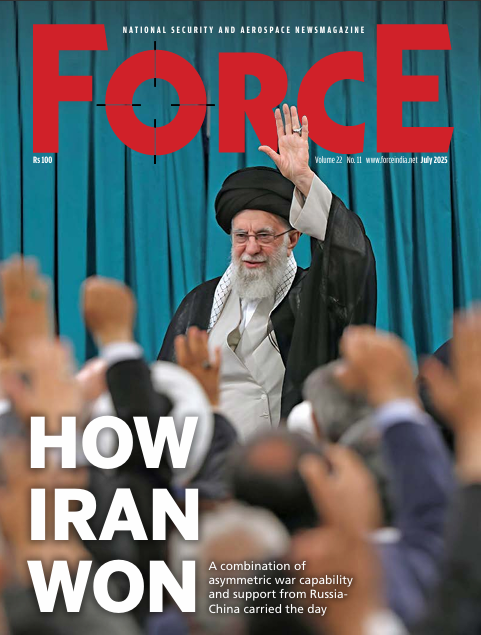Mind Over Matter | Stalemate Once Again
 Maj. Gen. Mrinal Suman (retd)
Maj. Gen. Mrinal Suman (retd)
The inevitable has happened. The much-trumpeted Strategic Partnership (SP) scheme has failed to take off. The government had claimed that the scheme would kick-start Indian defence industry by harnessing the potential of the private sector in the manufacture of high-tech defence equipment indigenously. The scheme aimed at creating additional capacity over and above the capacity and infrastructure that exists in the public sector. However, it was doomed to be a non-starter as the entry of the private sector is considered to be a threat to the very survival of the public sector and hence all stratagems are tried to abort such initiatives.
Regrettably, the decision makers either failed to learn from the history or deliberately attempted to hoodwink the environment by announcing a policy that they knew to be unimplementable. Earlier, a similarly delineated Raksha Utpadan Ratna (RUR) programme failed to overcome the obstacles created by the entrenched interest groups — public sector enterprises and their bureaucratic mentors. Success of the public sector in blocking the entry of the private sector can be gauged from the fact that since the opening of the defence production to the private sector in January 2002, the private sector has bagged no major contract, with the sole exception being the order placed on L&T for the supply of 100 units of 155mm/52 calibre Tracked Self-Propelled Gun systems (K9 VAJRA-T) in 2018.
The ministry of defence (MoD) is fully cognisant of the fact that both public and private sectors are national assets; and that, harnessing of the potential and prowess of the private sector is absolutely indispensable if India wants to achieve self reliance in defence production. It was in 1998 that MoD took the first major step to involve the private sector in defence production and constituted six joint task forces with the Confederation of Indian Industry to examine various issues. Consequently, the defence sector was thrown open to the private industry in 2002.
Repeated representations to MoD resulted in the constitution of Kelkar Committee in Jul 2004. It was tasked, inter alia, to examine and recommend modalities of integration of the user (services), MoD and the Indian industry (both private and public). The committee recommended that select private sector industry leaders be identified as RUR and treated at par with the public sector for all defence acquisition purposes to include design and development of high technology complex systems; production of platforms and integration of large weapon systems; receipt of contracted foreign technology for indigenous production; discharge of offset obligations; and receipt of funds for developmental projects.
1
The above suggestions were accepted by MoD and detailed guidelines were issued in May 2006 spelling out eligibility criterion and laying down the selection procedure. Soon thereafter, a selection committee was constituted under Prabir Sengupta. The private sector was ecstatic and responded enthusiastically. A total of 41 companies including most heavy weights applied. It is learnt that names of 12 companies were forwarded to MoD in June 2007. Most disappointingly, the government lost nerve in the face of unrelenting opposition orchestrated by the public sector and considered it prudent to give a quiet burial to the scheme.
It will also be instructive to recall the stalled proposal to replace the ageing fleet of Hawker Siddley (HS) AVRO 748 aircraft. Tenders were issued in May 2013 to all manufacturers of transport aircraft in the world. The proposal entailed procurement of 16 aircraft off-the-shelf from a foreign vendor and manufacture of 40 aircraft in India with complete transfer of technology. Notably, it was stipulated that the foreign vendor had to select a private sector entity to be the Indian production partner. Airbus responded with a proposal to produce C295 aircraft in India in collaboration with the Tatas.
Undoubtedly, it was by far the most commendable, bold and dynamic initiative taken by MoD. It had the potential of becoming a game changer. More importantly, it would have facilitated seamless integration of the private sector in defen
Subscribe To Force
Fuel Fearless Journalism with Your Yearly Subscription
SUBSCRIBE NOW
We don’t tell you how to do your job…
But we put the environment in which you do your job in perspective, so that when you step out you do so with the complete picture.








